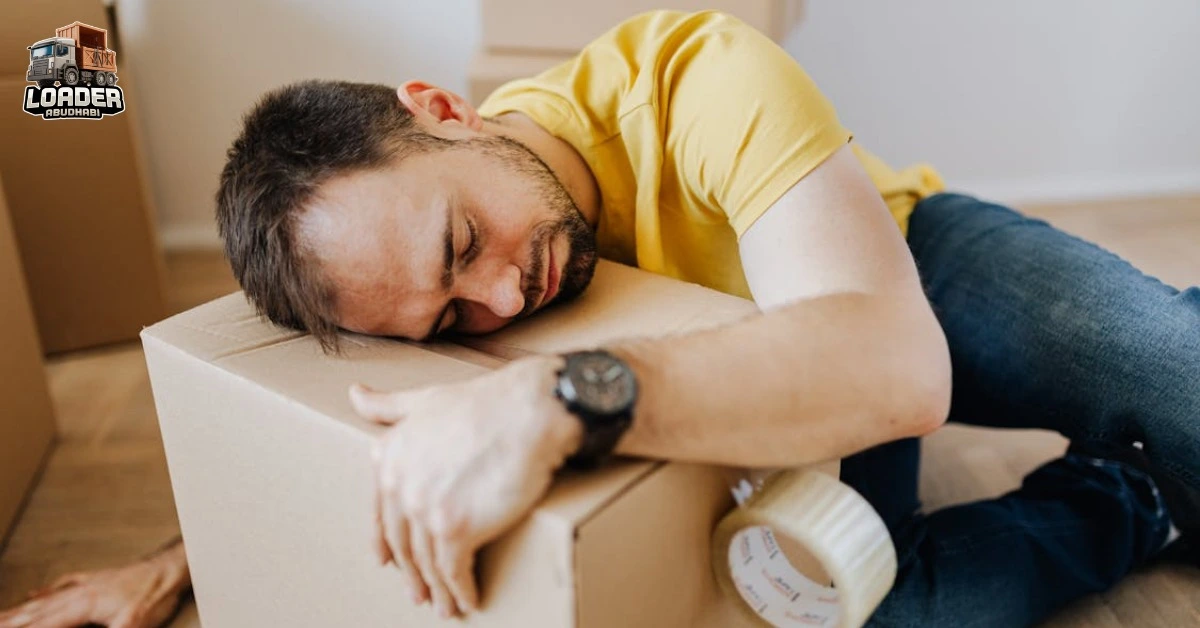Stress test
When it comes to moving, research shows that the stress can come from various life events. A well-known tool called the Social Readjustment Rating Scale was created in 1967 by psychiatrists Thomas Holmes and Richard Rahe. They studied how stressful different events are by assigning points to them. For instance, the death of a spouse scores the highest, while minor violations of the law score much lower. This checklist lets you tick off events that have affected you and helps you calculate a life-events score. While moving house is not on the list, it shares space with major stressors like divorce and marital separation.
Despite its absence, moving can still bring significant stress. The closest related items include having a large mortgage and changes in living conditions. It’s debatable how helpful these scales are, as we often struggle to remember what events have occurred and when. Many people forget to include all the events in their lives. For example, when women were asked to check off events each month and then again after 10 months, only a quarter of the events appeared on both lists, demonstrating how easily we can forget important life changes.
Pack up your troubles

When it comes to daily hassles, moving house doesn’t rank as high as other issues like property, investment, and taxes, which sit at number eight among stressors for middle-aged adults in the US. Many people worry about their weight, the health of a family member, rising prices, or home repairs. A British study found that 75% of people think relocating for work is somewhat or very stressful. However, this study mainly focuses on migration, which has its own complexities, and does not necessarily reflect the stress of moving house in comparison to other major life events.
Although moving can feel like a huge challenge, research shows that it is not as stressful as the death of a spouse or going through a divorce. This fact helps me stay calm and remind myself that while I might face some hiccups along the way, the overall stress level of moving may not be as bad as it seems.
Is moving home one of life’s most stressful events?
Moving home can often feel like one of life’s most stressful events. Right now, I’m in the middle of this experience, and I can tell you, it’s not easy. We’ve found a new house and sold our flat, but managing both sides means dealing with two sets of estate agents and solicitors. Paperwork issues can pop up, which might slow everything down. It’s tough not to get too attached to the house you want to buy, especially since it’s the biggest purchase of your life. After seeing the house only once, I find myself hesitating over simple decisions, like which skirt to buy.
Friends often say that moving house is the second most stressful thing you can do after losing a spouse or getting divorced. But is this true? Can moving really compare to major life events like facing a terminal illness, losing your parents, giving birth, or dealing with a newborn baby that won’t sleep? These questions linger in my mind as I navigate the challenges of moving.
Measuring the stress of moving house
Measuring the stress of moving house is crucial to understanding how it affects our mental well-being. Research conducted by Dr. William Cheung and business analyst Daniel Wong highlights the differences in stress levels among homeowners, renters, and a control group of non-movers in the Auckland region. Their study found that the average stress level of homeowners is higher compared to renters, particularly for those who move frequently. These individuals with high stress levels are often predisposed to experience more difficulties. Acute stresses might lead to one-off movements, but chronic stresses can result in more frequent relocations, impacting the overall housing tenure types, especially for social housing tenants who face significant challenges.
To measure stress effectively, the study utilized tools like the Social Readjustment Rating Scale (SRRS), which categorizes different life stressors from the 1960s, including moving house and other events like a spouse’s death or a large mortgage. The research demonstrated that stress levels decrease when individuals do not move frequently. Understanding these socioeconomic impacts is essential for developing effective housing strategies that promote sustained housing. Additionally, providing assistance programmes for the vulnerable, including those with mental illness, is vital for ensuring stable housing and access to necessary mental health services for urban residents facing transient circumstances.
Words not used: adults, households, higher, move frequently, baseline stress levels, determinantal to mental well-being, substantial contributor to stress, economic programmes, accessible, age 19 to 54, urban Auckland, 2013 to 2018, Integrated Data Infrastructure, census data, cost-effective, conventional surveys, sensitivity, influences, place experience, advantages, challenges, resident’s lifetime, personal history, social mobility, social well-being.
Moving House Ranked ‘Most Stressful Life Event’ by 57% of Brits
It’s no surprise that moving house is seen as the most stressful life event by 57% of Brits. After the lockdown, many households began seeking new places to live, and the new research from Legal & General highlights just how tough this transition can be. On average, the average Brit will move about four times in their lifetime, and each time can be incredibly stressful. In fact, many find it even more daunting than having a child or going through a divorce.
The survey revealed that home buyers, whether they are first-time buyers, people moving, or those looking for a second home, face numerous challenges during their big move. They often encounter obstacles while finding a property and finalising a mortgage. These common difficulties can create unexpected hurdles in the homebuying process, impacting their future decisions. Moving can feel overwhelming, but understanding these stresses can help manage them better.
Motivations behind moving
Moving to a new home is often considered one of the most stressful experiences in life. The stress of moving home can manifest in many ways, leading to feelings of anxiety or stress on moving day. Whether you’re relocating to a new area or a new location, the moving process involves numerous tasks that can be overwhelming. It’s important to ask for help from friends or hire a moving company to make your home move less stressful. Engaging a reliable removal company can significantly reduce the cost of moving and allow you to focus on unpacking and settling in.
Studies, including those from the University of Auckland, have shown that moving house stress can impact your well-being. To cope with moving stress, consider planning ahead and organizing your belongings. Creating a checklist of everything you need during the house move can streamline the entire operation. By breaking the tasks into manageable steps, you’ll find it easier to unpack and feel at home in your old home or moving into a new place. With the right strategies, you can make moving a less stressful experience.
Stressful side effects
Moving house is often seen as the most stressful life event that many face. It can bring about several stressful side effects. For instance, almost half of respondents reported increased stress levels during their move, highlighting that this experience is more overwhelming than even having a child, starting a new job, or going through a divorce. Research shows that 51% of men and 62% of women ranked moving house as their top stressor. Interestingly, women identified having a child as their second biggest stressor at 37%, while men placed it at third with 26%, just after job interviews at 30%.
The emotional toll of moving can lead to anxiety and sleep deprivation, affecting 31% of adults. Conflicts with partners are also common, with 25% reporting arguments during this hectic time. A major stress-inducing factor is the waiting time, as home buyers often have to wait three to five months to complete their move. With all these challenges, it’s no wonder that many people find moving to be a daunting process that significantly impacts their mental well-being.

Process pain points in house moving
Moving house is often considered stressful, with many mover experiences leading to moving stress and anxiety. The process can easily overwhelm a person’s entire life, causing stress to manifest in various ways. To reduce stress, it’s a good idea to create a detailed moving house checklist to ensure you get everything you need to get done.
From packing important documents to arranging for new furniture, the various parts of moving house can quickly add up. The cost of moving house can also contribute to the stress scale, especially when hiring professional movers. Many people who moved between 2013 and 2018 reported that the logistics of moving things often seem to result in one-off movements, making the entire experience feel chaotic. It’s essential to take the stress out of the equation and focus on enjoying the fresh start that comes with you’re moving.
Use a Home Setup Service for a stress-free move
Stress can manifest in various ways when you’re involved in moving to a new pad. From packing to logistics, it’s easy to feel overwhelmed, especially when trying to prepare for your move. However, using a Home Setup Service can significantly reduce anxiety and stress with the home. These move specialists take care of the details, allowing you to focus on the excitement of a fresh start in a new environment. The acute stresses seem to result from the chaos of moving, which can quickly lead to increased levels of frustration.
As soon as you know your move date, it’s wise to make a list of everything you need to tackle. This can help reduce anxiety about the process and ensure you don’t overlook essential tasks. With a specialized service, you can avoid less stress and instead embrace the opportunity to meet new people in your new community. After all, moving is not just about a change of address; it’s a chance for growth and a new chapter in life.
There’s less stress with the home moving experts
Moving to a new home can often feel overwhelming, but home moving experts can significantly reduce that burden. Stress can quickly accumulate when you’re faced with packing and logistics, making you feel like you’re drowning in chaos. With the right team, you can make your move smoother and more efficient, allowing you to settle into your new space without the typical headaches.
Research shows that chronic stresses result in more frequent movement among those aged 19 and 54 living in urban areas like 54 living in urban Auckland. This creates a moving culture where individuals may feel the pressure to relocate often. Cheung and Wong highlight how history and social mobility influence these patterns, suggesting that researchers can contribute to broader discussions on the emotional impacts of moving. By ensuring you have enough time to get everything organized, the challenges of relocating can transform into an exciting new chapter.

